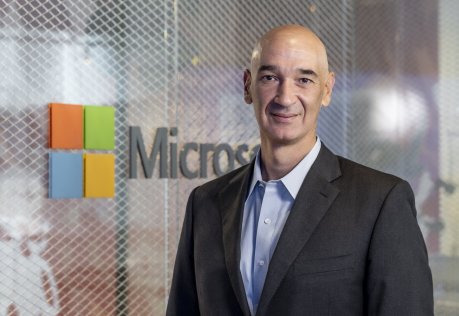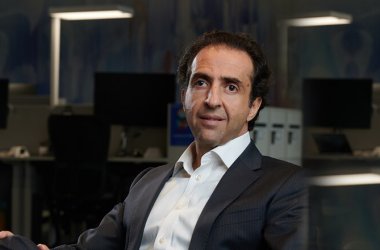
We started by focusing on the role the company played in the early days of the global health crisis, and Hashish was quick to point out the strategic investment made by Microsoft in terms of establishing data centres in the region, which proved critical in maintaining business continuity.
“Once the COVID-19 pandemic struck, we were well positioned to step up and support the UAE. Microsoft has been in the UAE for almost 30 years, and we have partnerships with most of the government agencies, telecommunication providers and other large multinationals. We also made a strategic decision to invest in the UAE through the creation of data centres in 2019, which turned out to be a huge benefit for the country,” said Hashish.
Hashish highlighted how a number of initiatives moved from concepts to reality during COVID-19, such as remote education, remote telehealth, and remote working, which were suddenly scaled up at breakneck speeds.
He added that Microsoft’s approach to the issues across all industry verticals were divided into three areas.
“The first phase of our approach was called the response phase, which attempted to determine how we would ensure that the technology we have, and the people and partners that we have were able to maintain business continuity,” said Hashish. “We had to leverage our technology and expertise to enable the business continuity of our customers including sectors like retail, where they ensured goods and supplies continued to flow in the market”.
Hashish declared that we are currently in the second, recovery phase.
“The recovery phase is essentially when you try to help rebuild economies and help customers reopen traditional businesses now that lockdown restrictions have eased. There is now also a real focus on the economic activity of the country and a desire to regain momentum,” said Hashish.
There is a lot of optimism following the announcement of a vaccine by Pfizer, and the General Manager of Microsoft UAE believes that we will soon be in a position to embark upon the third phase, which has been called reimagine.
“The reimagine phase is designed to capitalise on the opportunities and positive learnings that have come out of the COVID-19 crisis. There was scepticism when it was suggested that it would be possible to operate remotely and still remain efficient and productive, but that has been proven to be true and this hybrid workplace is here to stay,” said Hashish.
The Microsoft thought leader added that many people could not see the advantages of the hybrid workplace and revealed that based on a recent Microsoft UAE based survey, 97% of the business leaders that they speak to now firmly believe this new model will be the norm.
“There is no doubt that there will be a continuation of this type of workplace flexibility because of the benefits of it. There has also been a huge acceptance of the fact that technology derives real value – and all these components comprise what we call the reimagine phase, designed to capitalise on this new momentum and the acceptance of people towards technology, which we didn’t have in the past,” concluded Hashish.





